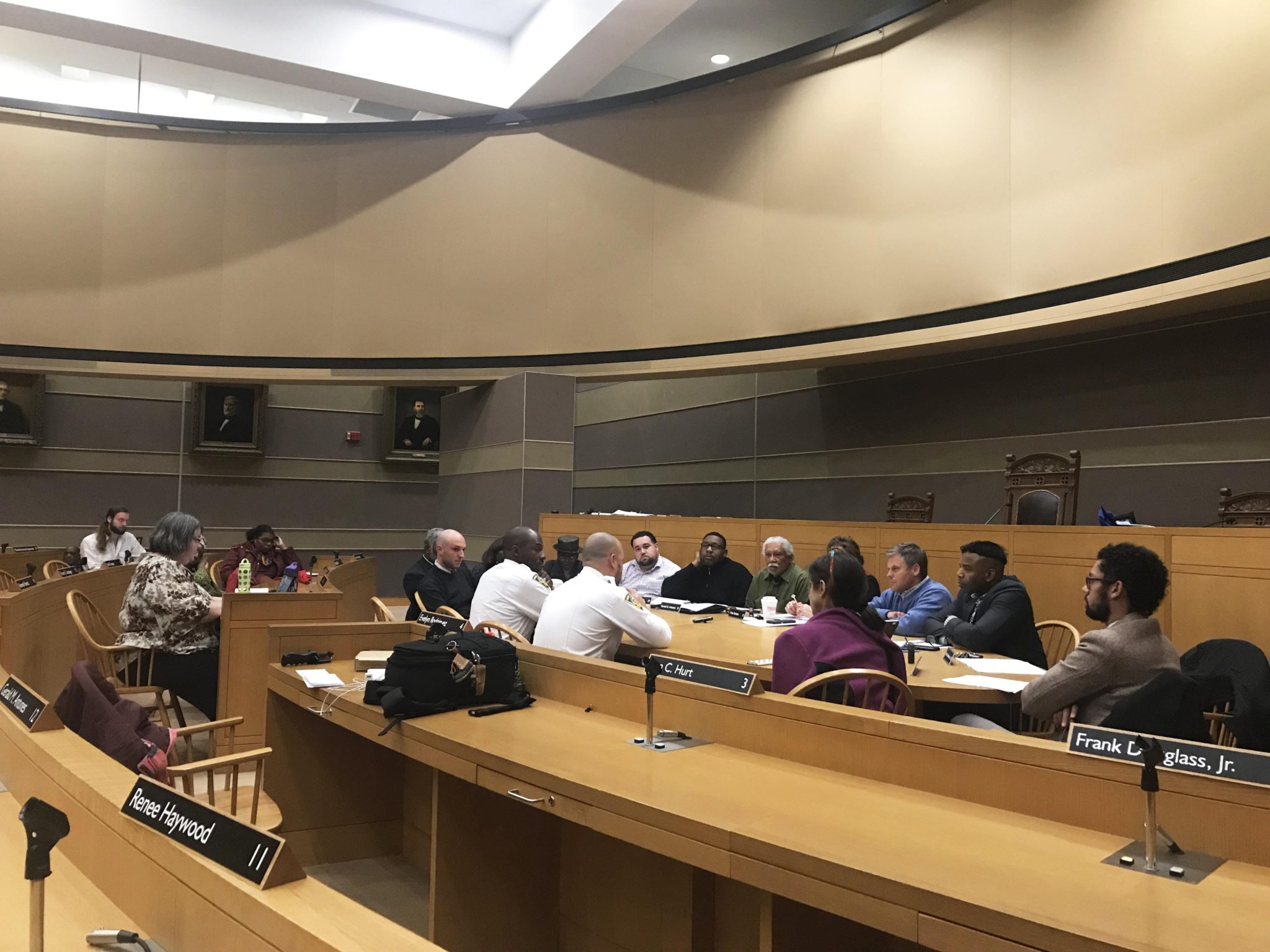
Sammy Westfall
In January, the New Haven Board of Alders established a long-awaited civilian review board in an effort to address police brutality and accountability. But implementation of the body has proved challenging — nearly half of the first crop of proposed nominees were denied near-unanimously by the Board of Alders in a vote earlier this month.
On Aug. 5, city Alders met to review the nominations of 11 Elm City residents by Mayor Toni Harp to the Civilian Review Board. Of the nominees, six passed unanimously, while the remaining five were withdrawn. Four failed unanimously and one — former West Haven police officer Bob Proto — earned just one vote in his favor. At the nomination hearings in July, community members appeared divided over who should serve on the newly formed board that will have a hand in redefining justice and police accountability in the Elm City.
“We want a variety and a diverse group of people who understand how to work with other people,” Emma Jones, who has helped guide the yearslong fight for a civilian review board, said at the Board of Alders meeting, as reported by the New Haven Independent.
According to the ordinance that established the civilian review board on Jan. 7, 10 members must come from each of the 10 police districts in New Haven, one member must come from the Board of Alders and at least two must be from the community at large. Police officers and elected officials, other than the Alder appointed by the President of the Board of Alders, are barred from serving on the body, according to the ordinance.
The city’s 12 local community management teams — neighborhood teams formed to exchange information and discuss local issues — were tasked with collecting and sending prospective candidates’ names to the mayor’s office. Every candidate recommended by the management teams was interviewed by Harp’s liaison to the Board of Alders, Esther Armmand, Mayoral Spokesman Laurence Grotheer told the News. He said that the mayor’s selections were based on the recommendations of the management teams, the candidate’s applications and the interviews conducted by Armmand.
Under the committee bylaws, the Elm City mayor nominates all members of the body — except the aldermanic representative and the Alder-appointed at-large members. All nominees must be confirmed by a majority vote of the Board of Alders.
Six of Harp’s nominees — Iva Johnson, a West Rock labor organizer and Democratic Party Committee co-chair; Jewu Richardson, a police accountability activist; Nina Fawcett, a Newhallville Community Management Team member; Richard Crouse GRD ’21, a Yale neuroscience graduate student; Jayuan Carter, Ward 22 co-chair; and Jean Jenkins, a Dixwell educator — earned approval for their spots on the Board without any objection from the alders.
The alders voted to withdraw the other five nominees — Donald Spencer, University of Bridgeport law professor Ryan Knox, Connecticut College art professor Chris Barnard, journalist and filmmaker Stephen Hamm and Proto — from consideration.
The decisions, in both directions, were uncontentious. Ward 1 Alder Hacibey Catalbasoglu ’19 told the News that the Alders were “not divided” on any votes in particular. He cited a variety of candidate-specific reasons for voting against each of the five rejected candidates.
“The nominees who were rejected were rejected for different reasons,” Catabasoglu said. He said he chose to reject Knox, Proto and Barnard due to Knox’s failure to attend his confirmation hearing, concerns over Proto’s past as a police officer and Barnard’s apparent lack of preparation, respectively.
Meanwhile, Hamm — who was also rejected by the Board of Alders — faced strong criticism from community activists. At his July 22 hearing, they accused him of lacking an understanding of structural racism and criticized his “centrism,” among other concerns. Activists who spoke out against his candidacy included Kerry Ellington, an organizer with People Against Police Brutality — one of the most prominent groups in fighting for the establishment of a robust civilian review board.
“Members of the Police Brutality group want people on the board who are prejudiced against the police and determined to punish them — no matter the facts of a particular case,” Hamm wrote in an opinion published in the New Haven Independent after the nominee faced intense scrutiny.
Catalbasoglu said he thought the opinion was “reactionary” and showed an inability to “operate under pressure.” Both Hamm’s and Proto’s rejections were met with applause from the crowd gathered at the vote.
Grotheer noted that every district has to be represented in Civilian Review Board membership.
“So if recommendations from certain management teams were turned down, and then if there were no other recommendations [from that district], then the management teams would have to make new recommendations — and the process would have to start over again,” Grotheer told the News.
The Board of Alder appointments and aldermanic representative have yet to be released.
Angela Xiao | angela.xiao@yale.edu
Sammy Westfall | sammy.westfall@yale.edu







